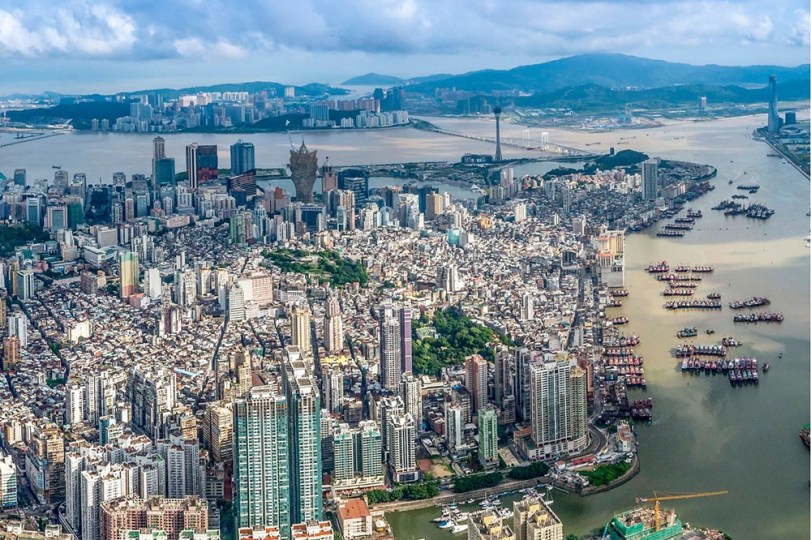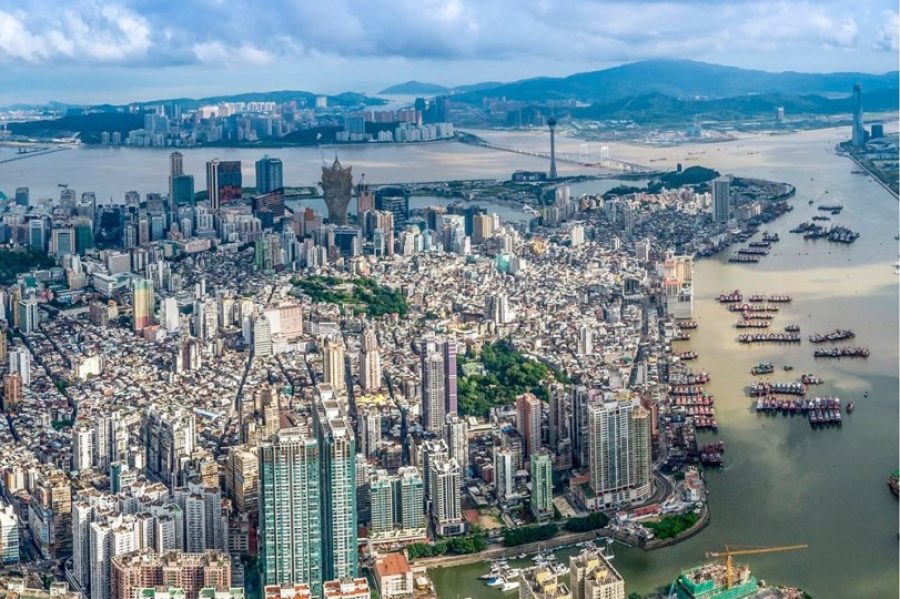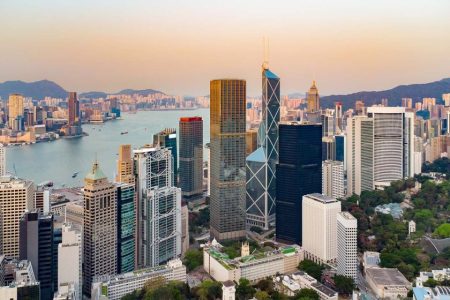Macau’s recession deepened in the third quarter when its gross domestic product (GDP) shrank by 4.5 per cent year-on-year in real terms, the third quarterly drop in a row, according to released by the Statistics and Census Bureau (DSEC) on Friday.
In the first and second quarters of this year GDP decreased by 3.8 per cent and 2.2 per cent respectively, according to revised figures. In the first half of the year, GDP was down by 3.0 per cent, while in the first three quarters it shrank by 3.5 per cent.
A recession is usually identified when GDP falls for at least two consecutive quarters.
GDP stood at 105.7 billion patacas in the third quarter.
A DSEC statement attributed the third quarter’s GDP drop mainly to “a larger a larger decline in exports of services”
The statement noted that external demand continued to slow, with exports of services falling by 4.7 per cent, while exports of goods edged up by 0.5 per cent. Domestic demand decreased at a slower pace. Gross fixed capital formation dropped by 8.5 per cent, whereas private consumption expenditure and government final consumption expenditure rose by 2.8 per cent and 4.3 per cent respectively.
Imports of goods and services increased by 1.6 per cent and 2.1 per cent respectively. The implicit deflator of GDP, which measures the overall changes in prices, went up by 2.4 per cent year-on-year, according to the statement.
Private consumption rises
Private consumption showed steady growth. Despite a relatively large drop (-12.4 per cent) in spending of residents on durable goods, private consumption expenditure grew by 2.8 per cent, which was in line with the growth in the previous quarter, according to the statement. Household final consumption expenditure in the domestic market and abroad showed respective increases of 2.5 per cent and 3.4 per cent.
Government final consumption expenditure maintained its growth, rising by 4.3 per cent year-on-year. Compensation of employees rose by 2.5 per cent and net purchases of goods and services went up by 6.2 per cent.
Investment in fixed assets recorded a slower decrease. Gross fixed capital formation dropped by 8.5 per cent year-on-year, with construction investment and equipment investment falling by 9.7 per cent and 3.0 per cent respectively. Private construction investment declined by 26.3 per cent owing to reduced investment in residential projects and the corresponding drop in real estate developers’ operating margin, the statement said. Private equipment investment, however, rose by 1.7 per cent.
Public construction investment surged by 131.3 per cent as a result of increased government investment, as well as a low base of comparison due to the completion of major construction projects in the Macau border checkpoint area of the Hong Kong-Zhuhai-Macau Bridge (HZMB) in the third quarter of last year, the statement noted. Public equipment investment shrank by 19.3 per cent.
External merchandise trade slackened. In spite of a sustained growth in private consumption, imports of goods merely increased by 1.6 per cent owing to the continued decrease in investment. External demand slowed down, with exports of goods merely rising by 0.5 per cent.
Exports of services posted accelerated decline. Overnight visitor arrivals decreased by 1.2 per cent “under external influences”, while same-day visitors increased, the statement pointed out.
Exports of gaming services fall
As per-capita spending of both overnight visitors and same-day visitors each recorded a relatively large drop, the statement said, adding that exports of other tourism services contracted by 12.4 per cent. Exports of gaming services fell by 4.2 per cent, dragged down by a steeper decrease in VIP gaming business. Imports of services rose by 2.1 per cent year-on-year.
According to the Macau Post Daily, for the first three quarters of the year GDP shrank by 3.5 per cent. In terms of the major expenditure components of GDP, private consumption expenditure and government final consumption expenditure rose by 2.9 per cent and 4.9 per cent respectively. Investment dropped by 22.1 per cent. Exports of goods fell by 9.1 per cent, while imports of goods rose by 0.3 percent. Exports of services fell by 1.9 per cent, with exports of gaming services falling by 2.0 per cent. Imports of services decreased by 10.4 per cent.
GDP growth for 2017 and last year was revised upward to 9.9 per cent and 5.4 per cent respectively.






